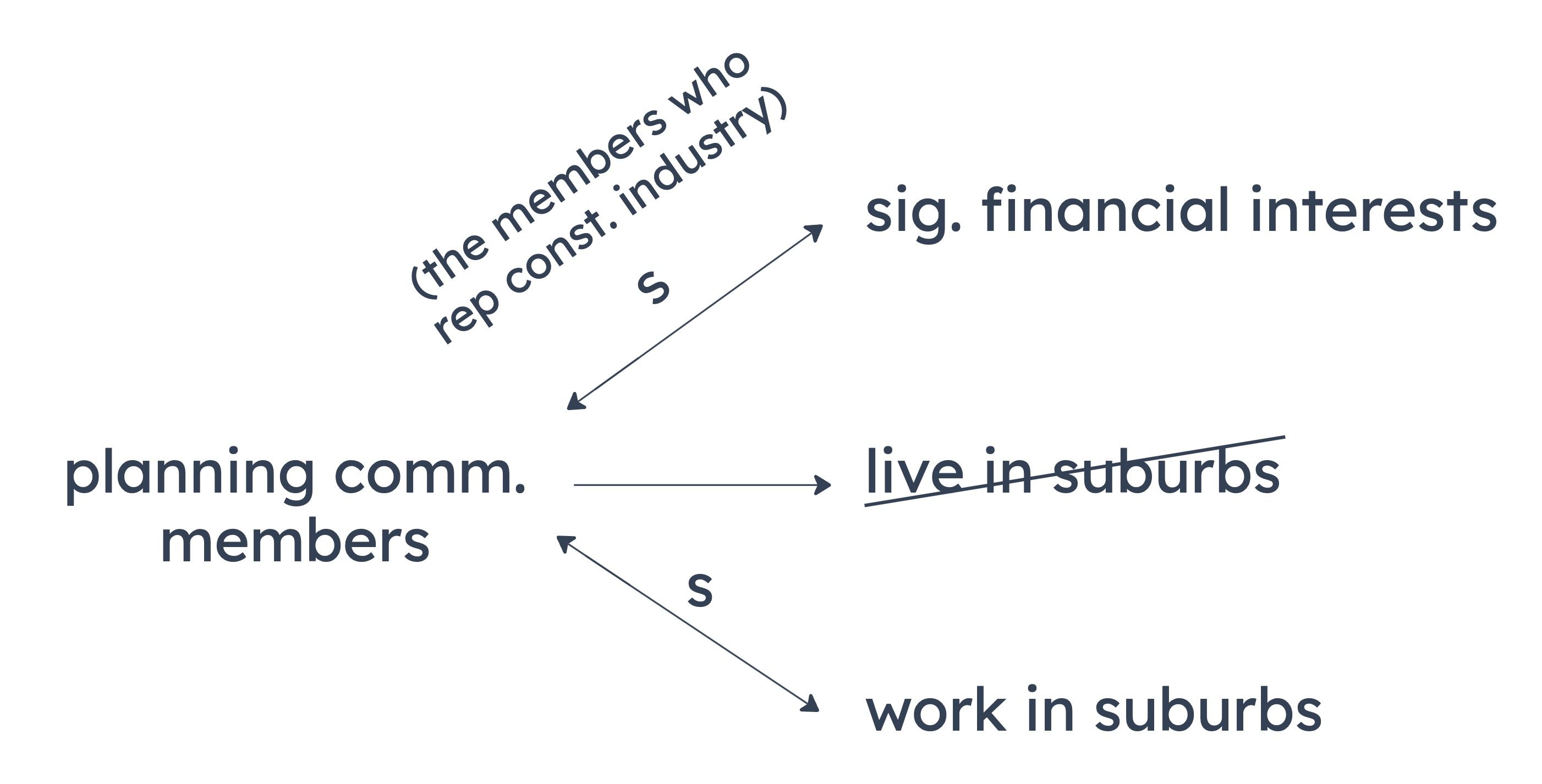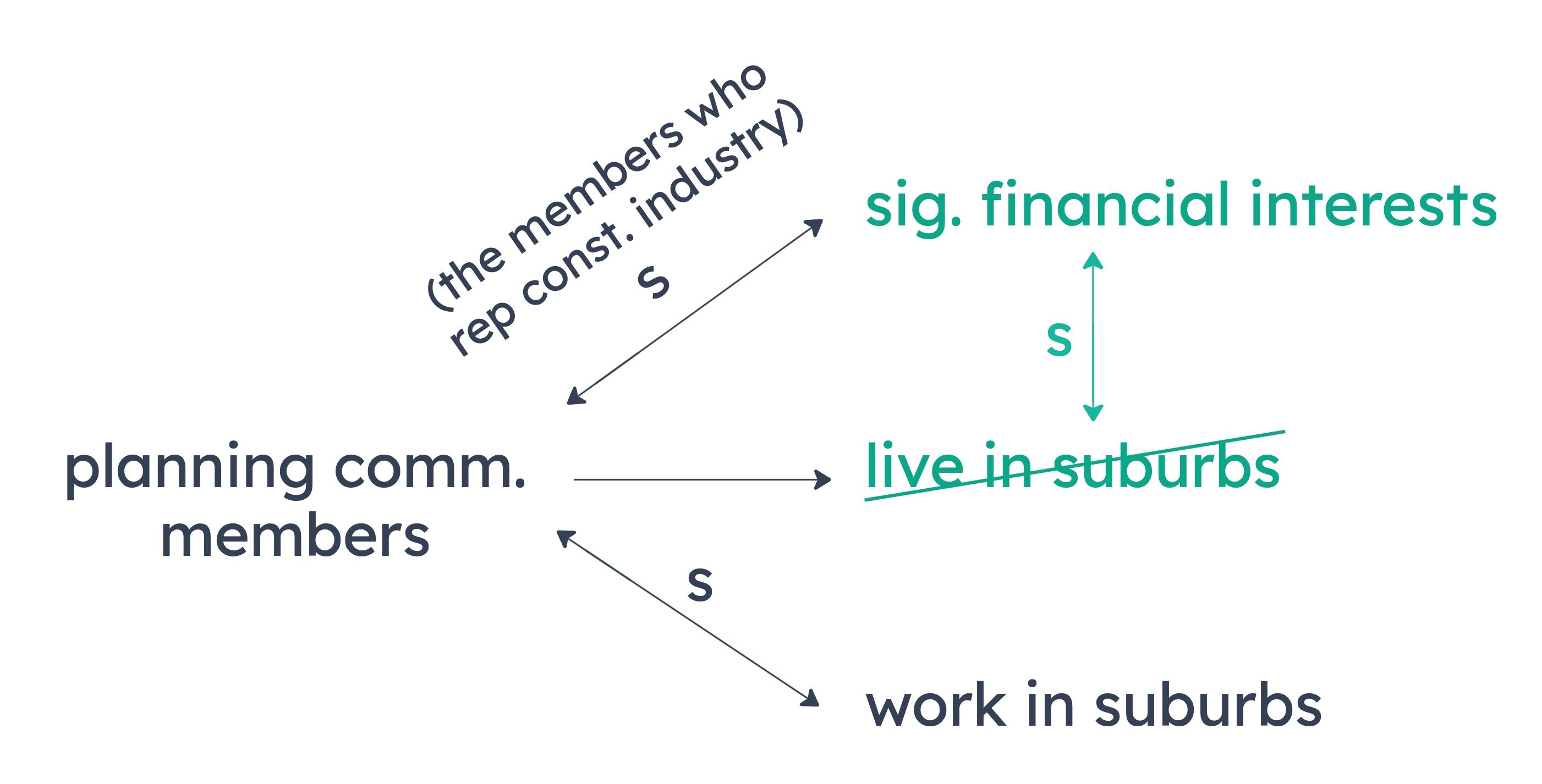A
Many drugs prescribed to combat clinical depression act by causing increased left lobe activity.
B
Excessive sleep, a typical consequence of clinical depression, is known to suppress left lobe activity.
C
Frontal lobe activity is not subject to variation the way general disposition is.
D
Earlier studies indicated that frontal lobe activity and emotive states are both caused by activity in the brain’s limbic system.
E
Social interaction of the kind not engaged in by most clinically depressed people is known to stimulate left lobe activity.
Anyone on the planning committee does not live in the suburbs.
Some planning committee members work in the suburbs.

Some people who represent the construction industry do not live in the suburbs.
(If you know All A is B, and Some A is C, you can conclude Some B is C.)
A
No persons with significant financial interests in the planning committee’s decisions are not in the construction industry.
B
No person who has a significant financial interest in the planning committee’s decisions lives in the suburbs.
C
Some persons with significant financial interests in the planning committee’s decisions work in the suburbs.
D
Some planning committee members who represent the construction industry do not work in the suburbs.
E
Some persons with significant financial interests in the planning committee’s decisions do not live in the suburbs.

A
The Springhill authorities do a poor job of enforcing its water emergency laws and many people break the laws without incurring a penalty.
B
The town council of Springhill recently refused to raise the threshold.
C
The threshold is kept at a high enough level to exceed the water requirements of most households in Springhill.
D
The threshold is not as high in Springhill as it is in neighboring towns.
E
The threshold remains at the predetermined level specified by law until a change is approved by the Springhill town council.
Accountant: If you look at individual restaurants, however, you find that the number of meals sold actually decreased substantially at every one of our restaurants that was in operation both last year and the year before. The desirability of our meals to consumers has clearly decreased, given that this group of restaurants—the only ones for which we have sales figures that permit a comparison between last year and the year before—demonstrates a trend toward fewer sales.
A
The company’s restaurants last year dropped from their menus most of the new dishes that had been introduced the year before.
B
Prior to last year there was an overall downward trend in the company’s sales.
C
Those of the company’s restaurants that did increase their sales last year did not offer large discounts on prices to attract customers.
D
Sales of the company’s most expensive meal contributed little to the overall two-year sales increase.
E
Most of the company’s restaurants that were in operation throughout both last year and the year before are located in areas where residents experienced a severe overall decline in income last year.
Smoker: But it is equally well established that regularly eating high-fat, high-cholesterol foods causes as many serious health problems as does smoking, yet it would be manifestly unreasonable to force those who purchase such foods to bear the burden of financing this campaign.